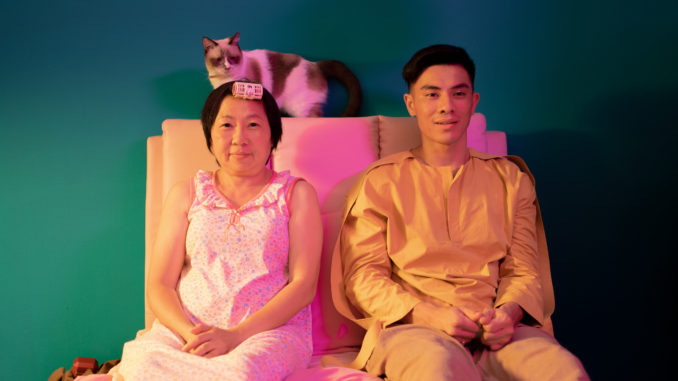
“It has always been a film about real estate,” said Antti Toivonen, one of the writers of Tiong Bahru Social Club, a candy-coloured comedy-drama set in the eponymous neighbourhood.
The film was written by Tan Bee Thiam and Antti Toivonen, who both spent five years developing it. Tiong Bahru Social Club manages to be distinctly Singaporean, while eschewing the low-brow humour or heavily desaturated colours that are commonly associated with such movies, and delivers a colourful, quirky comedy that touches on all manner of timely topics.
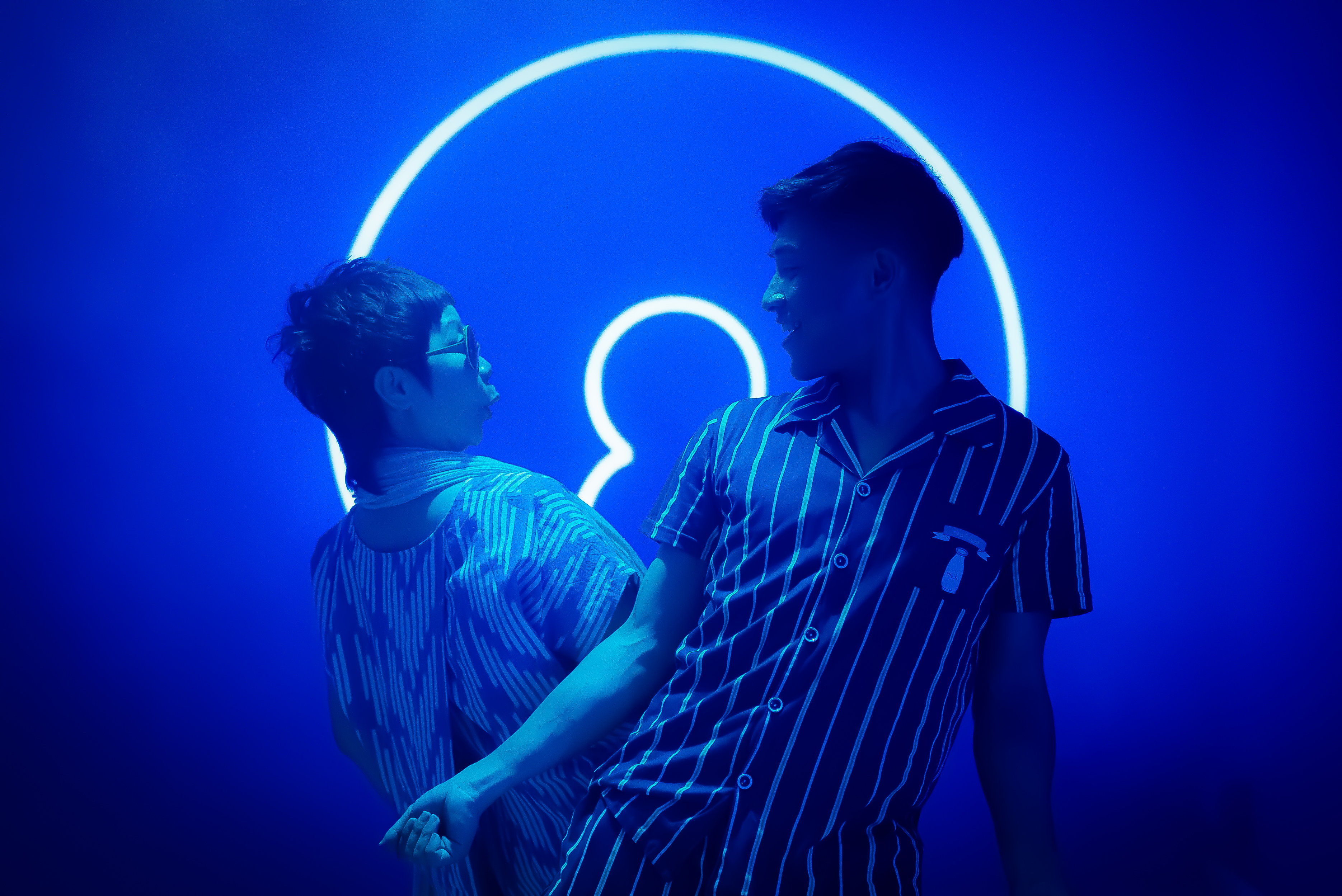
“[Real estate] was actually what we spoke about when we were having our first coffee — Tiong Bahru’s property prices have gone up,” laughed Toivonen. “It was recognised as one of the coolest neighbourhoods in the world. That was the basic idea of the film — what if somebody manufactured this hive around a neighbourhood?”
He went on to share about the whole mechanism of manufacturing happiness to bring up property prices was one of the basic ideas since Day One, and is present all the way until the last scene.
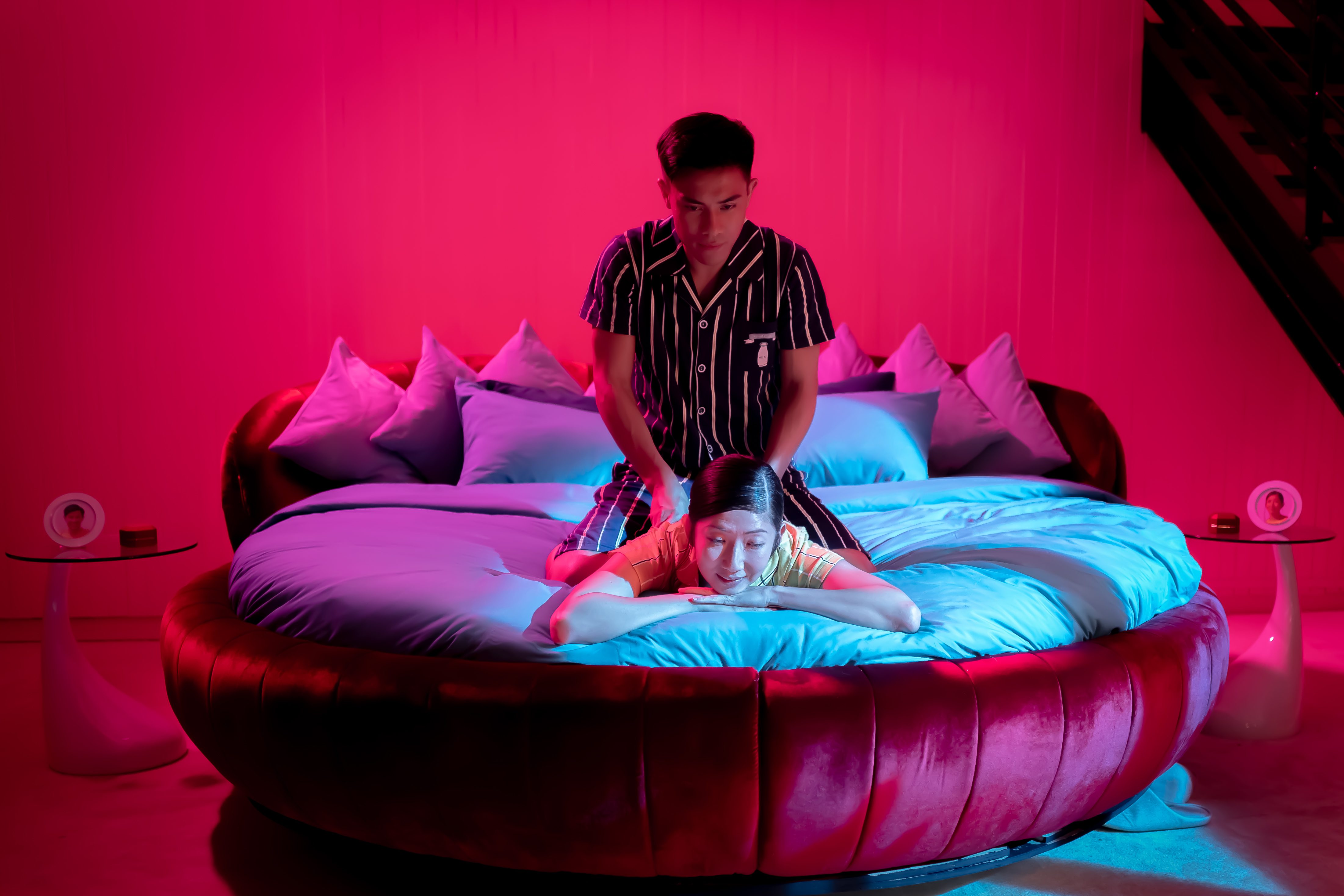
In fact, the real estate theme factored heavily in previous drafts of the script. “In an earlier version of Tiong Bahru Social Club, Ah Bee is a property agent,” said Tan, explaining how property and spaces and architecture were a big part of the film. “In the earlier scripts, he is a property agent and he has a mentor.”
Tan who also directed the film, met fellow collaborator Toivonen at a Singapore International Film Festival five years ago. Their first meeting revolved around looking for places to stay, and both of them were eyeing Tiong Bahru as a place to live. “We started to do research about Tiong Bahru, about stories that we had heard, and that’s why we came up with Tiong Bahru Social Club,” said Tan.
“Tiong Bahru really feels like a little island of happiness in Singapore,” gushed Toivonen, “and every city has a similar neighbourhood that has this cosy, village-y sort of feel to it.”
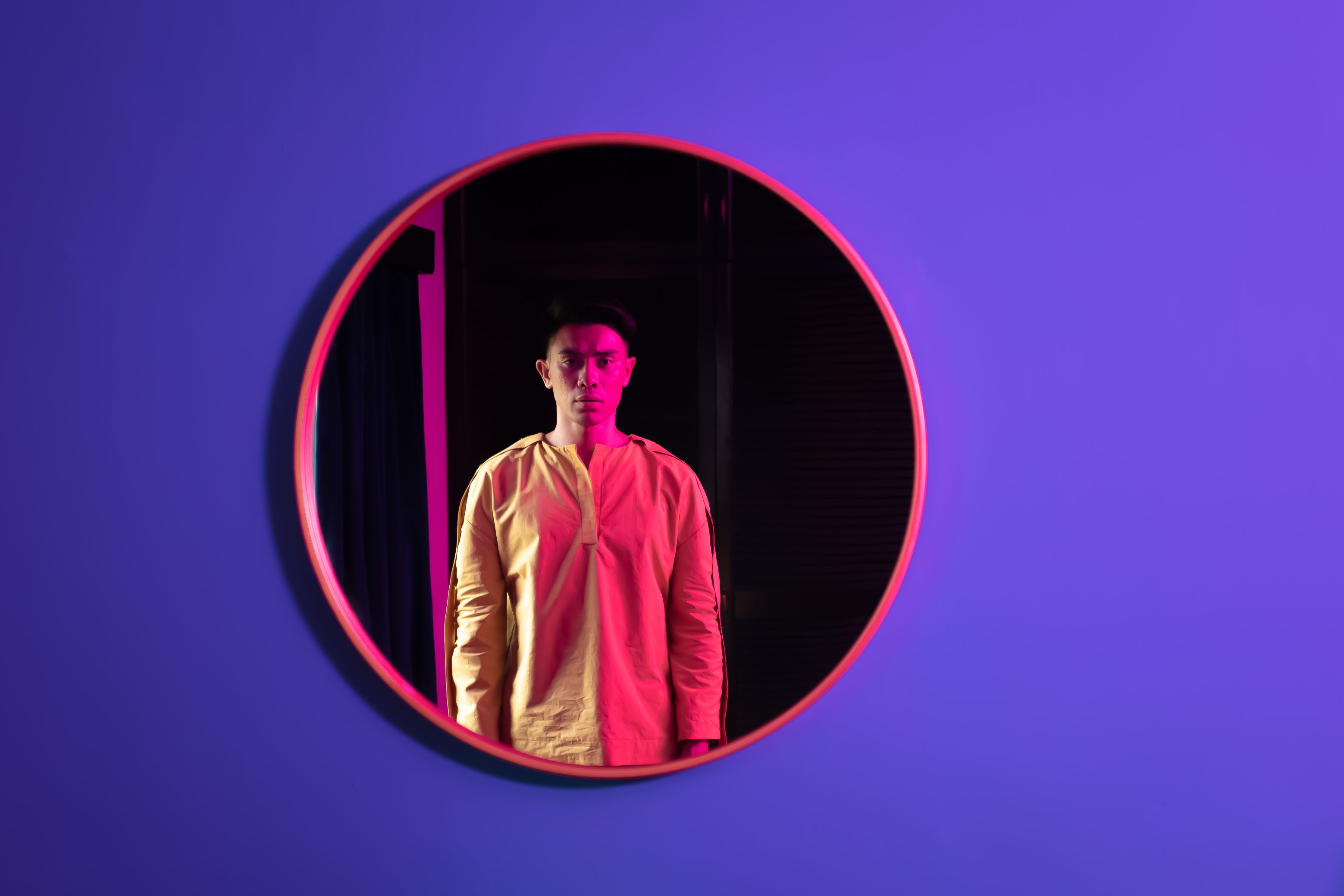
One of the most striking things about Tiong Bahru Social Club is its rich colour palette and the striking contrasts found in its art design, ranging from the symmetry of each shot’s composition to its timeless look. So what was the purpose of its unforgettable visuals?
“We are able to imagine a world, a universe that is Tiong Bahru Social Club. And in it you see a very weird symmetry, almost as if everything is ordered, as if there is a higher being ordering everything in an eerie symmetry and geometry. It serves the story. And even the candy-pop colours, it’s almost as if you’re entering a bubble tea museum, where everything is artificially enhanced, to make you feel happy. So that was the intention, in terms of the colours and the visuals,” shared Tan on the look of the film. “We were also trying to create a retro-futuristic aesthetic, about the past trying to imagine the future.”
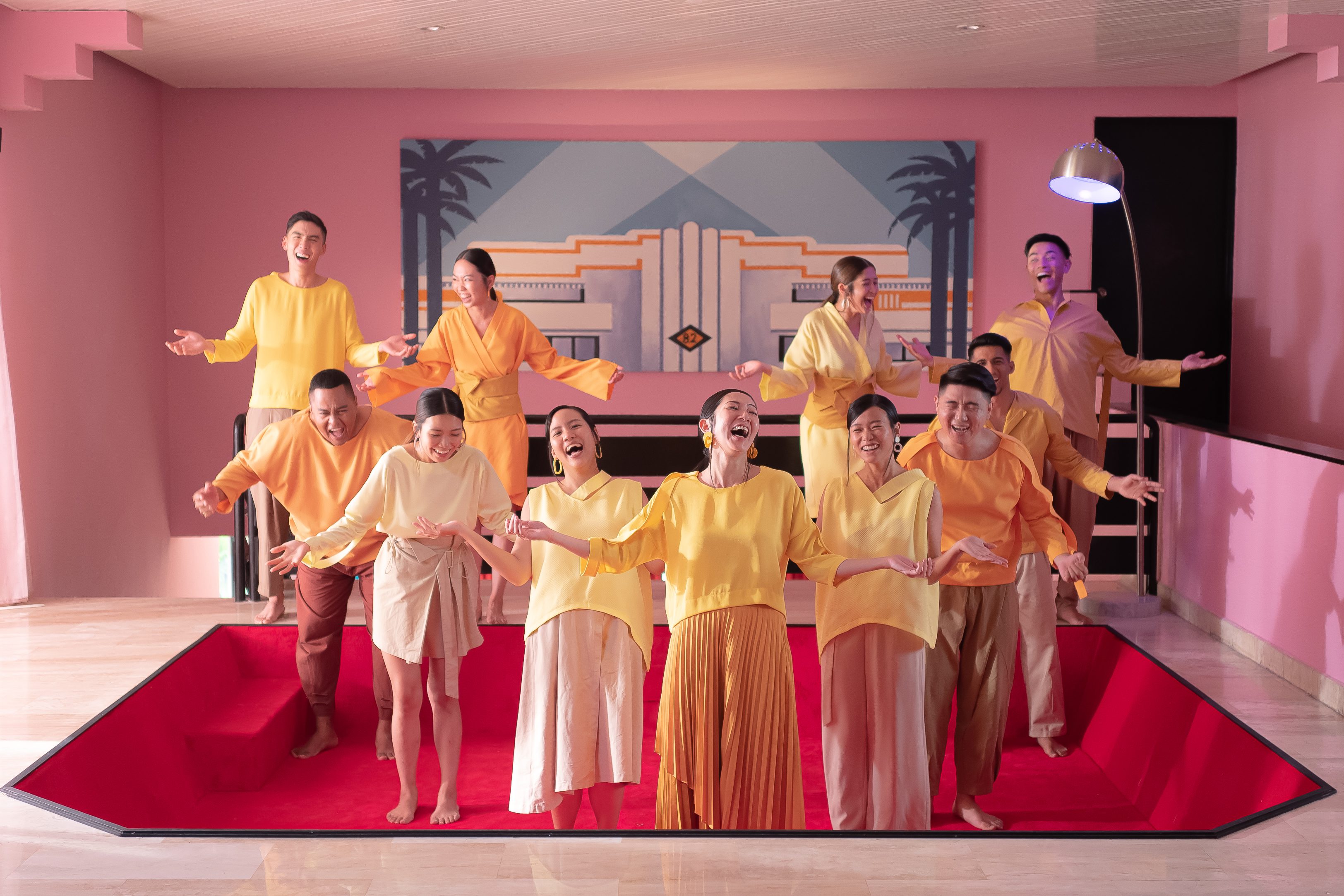
While the film’s setting may look like some sort of idyllic haven, it actually had an impact on the plot of the film — resulting in some unexpected but interesting additions to the script.
“So you see the cuddle scene, which actually didn’t exist in the script [at first]?” said Toivonen. “James Page, the head of production design, he discovered that under the floor [of the bungalow we shot in] there was something deeper, so he tore it open and we found this hole in the ground, and we named it the Cuddle Pit. It just became the name for it, and he put red velvet there, and it became a big part of how we wrote it, knowing that there’s a big hole in the middle of the unit.”
The cuddle scene is a film where the main character Ah Bee (Thomas Pang) finds himself in a lesson about learning how to hug, but discovering how incredibly awkward it is.
Tan also shared that the mural behind the Cuddle Pit was commissioned because it originally looked too bare, and they wanted to extend Tiong Bahru inside the social club itself.
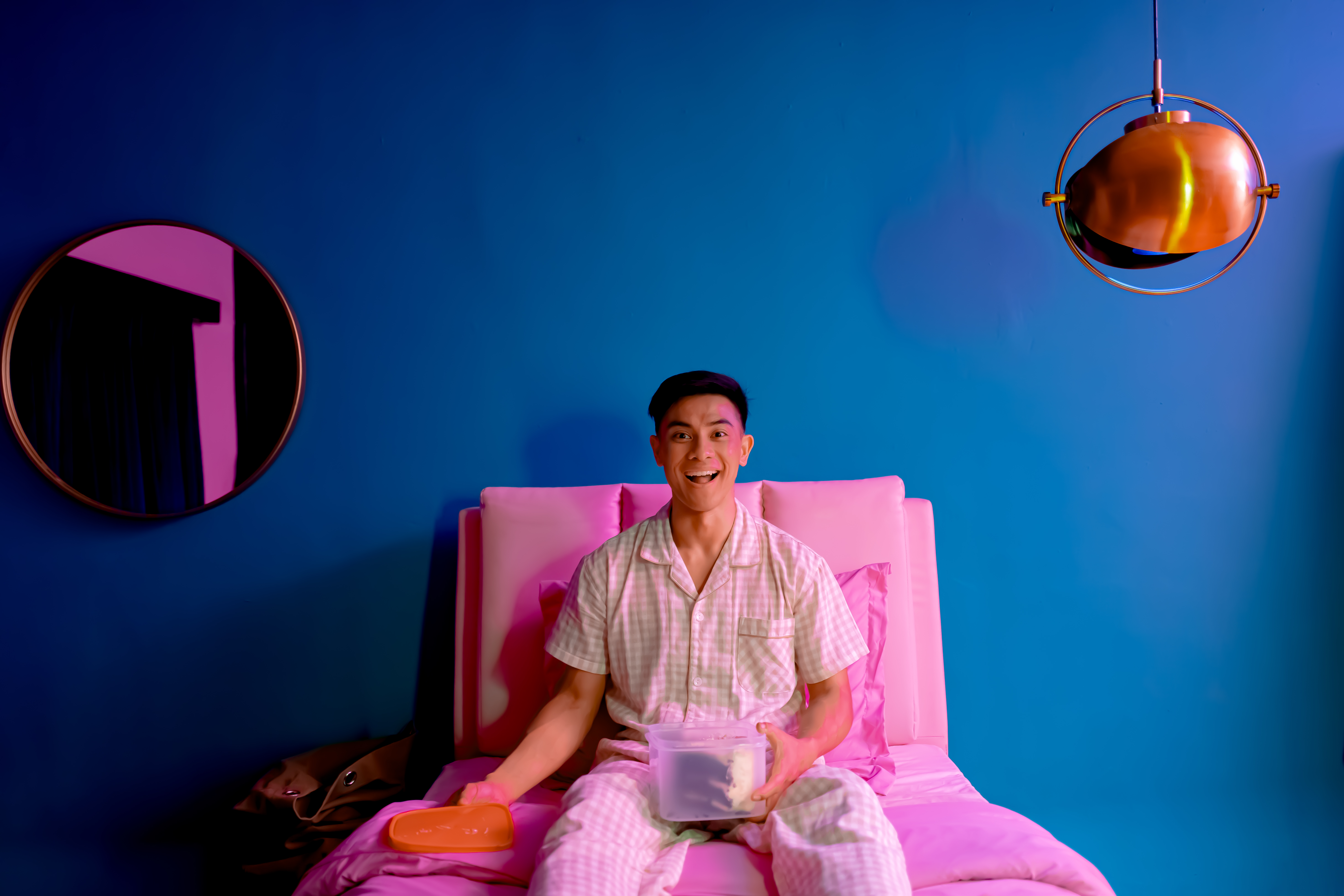
With the idea of manufactured happiness being one of the themes of the film, what do Tan and Toivonen think about AI and big data?
“You can feel that people are very reluctant to give up their privacy. But at the same time the power of governments and corporations to dangle convenience in front of people, it seems something that is very hard to resist,” said Tan, talking about this affected access to apps and services. “So it seems futile to say no, and sooner or later we will have to give up our privacy.”
But to create an evil corporation was such a tiring idea, that they didn’t want to take any sides, said Toivonen. So they stayed away from pointing fingers.
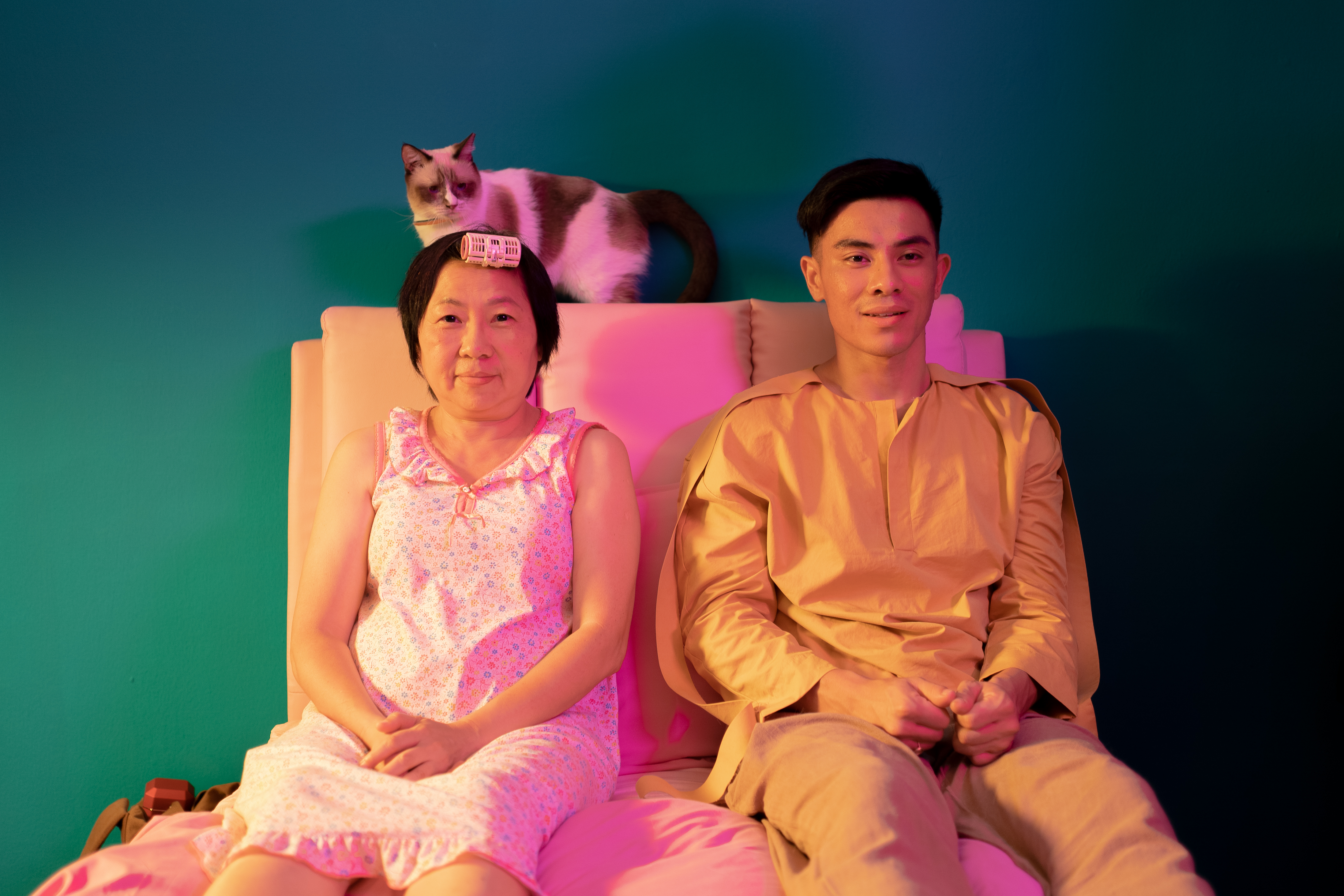
However, we’re still a long way from such a dystopian future, the creators observed, if the irrelevancy of social media ads are anything to go by. “Social media giants and credit card companies are gathering a lot of information about people, and now there’s been a lot of talk about how some companies know everything about us. But what we found quite amusing was that we’ve been giving so much information to say, Facebook, over the years, and still we get targetted by ads that are so irrelevant to us!” said Toivonen.
“So despite them seemingly knowing so much about us, they don’t know who we are, as people.”
Tiong Bahru Social Club opens in cinemas 10 December, 2020.
This article was first published on and written for Yahoo Lifestyle Singapore.
Follow Marcus Goh (yes, referring to myself in third person) on Facebook and Instagram for more (presumably) good updates!
I’m an independent scriptwriter who’s written for popular shows like Lion Mums, Crimewatch, Police & Thief, and Incredible Tales. I’m also a Transformers enthusiast and avid pop culture scholar. You can find me on social media as Optimarcus and on my site.
Send me an email if you want to get in touch!
Leave a Reply